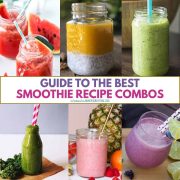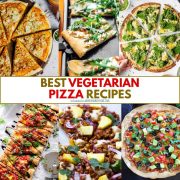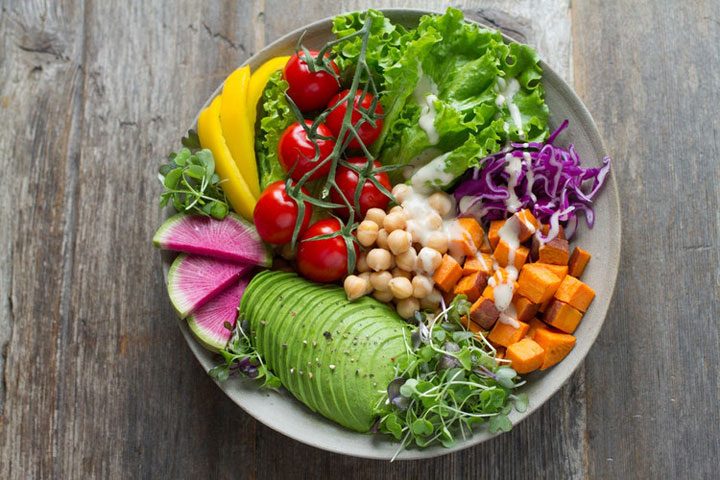
Vegetarian (noun): a person who does not eat meat; someone whose diet consists wholly of vegetables, fruits, grains, nuts, and sometimes eggs or dairy products.
Vegetarian (adjective): relating to the exclusion of meat or other animal products from the diet.
Notice how there's nothing about bad-tasting food or depriving yourself of proper nutrition? Contrary to what others may think, eating vegetarian food can actually * gasp * taste good and be good for your body.
If you're thinking of incorporating meatless meals in your diet, then here's a guide to going and being vegetarian.
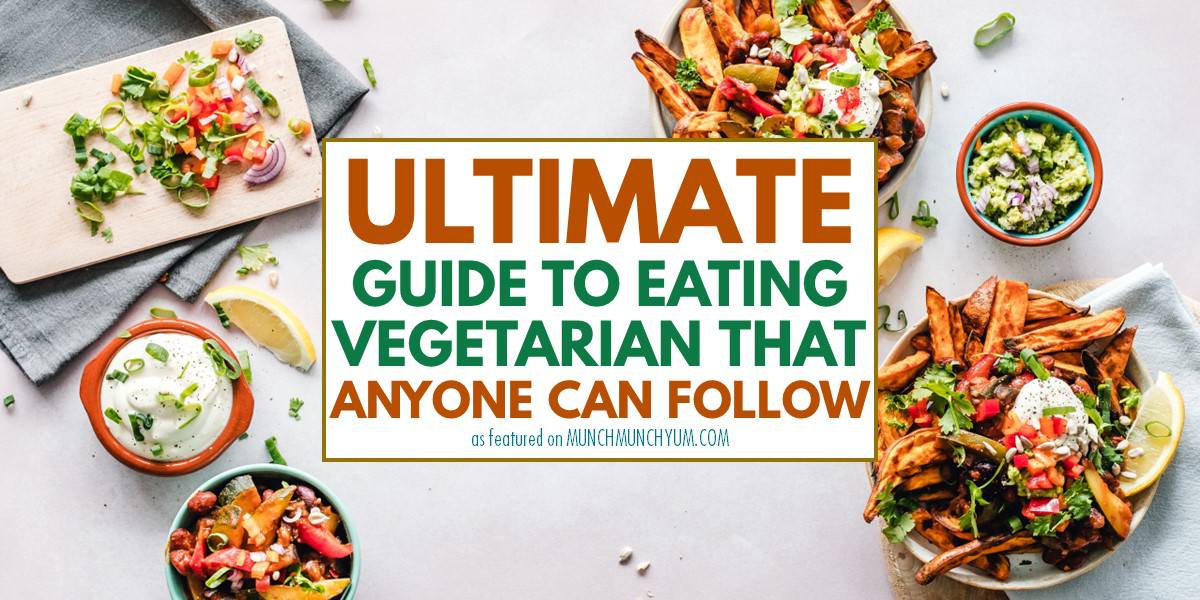
Disclosure: Opinions expressed are our own. If you buy something through any of our affiliate links on this page, we may earn a commission at no extra cost to you. Thanks for supporting our site!
Recommendations
- Meal plans and grocery lists* make it so easy peasy to stick to this diet
- A classic cookbook* that was written by the Julia Childs of vegetarian cooking
- Tried and true recipes* that satisfied even a whole crew of firefighters
Vegetarianism in a Nutshell
Most people understand that the basic concept of vegetarianism essentially means cutting out meats and seafood from your diet.
That simple concept, though, can come with a ton of questions:
- Why do people become vegetarians?
- How does it differ from being vegan?
- Why is it becoming more and more popular?
- Are there health benefits?
- Can you lose weight with a vegetarian diet?
- Will I get enough nutrients without meat?
- How do I go about changing my diet?
Our ultimate guide is here to help you answer all these questions and more. We’ll show you the why, teach you the how, and give you tips to ensure that incorporating vegetarian foods into your life is both delicious and easy!

History
The short version: vegetarianism has been around for a looong time.
The long version: According to Vegetarian Society, the history of vegetarianism dates back to Ancient Greek times. Mathematician Pythagoras followed this diet. Smart man.
On the other side of the globe, many Eastern religions go way back with vegetarianism, since this type of diet supported their religious principles of nonviolence.
Attitudes towards vegetarianism throughout history varied, depending on what issues the general population faced.
In today's world, given the amount of attention placed on health and the environment*, vegetarianism is thriving more than ever.
Definition & Types of Vegetarians
Generally speaking, a vegetarian can be defined as someone who doesn’t eat anything made from a deceased animal.
This includes not only the meat of the animal itself, but also any foods made with by-products that came from a deceased animal (such as gelatin).
What confuses people is that there are different sub-types of vegetarians. These labels basically help let others know whether or not your diet varies from the general rule above.
- Lacto-ovo vegetarian: eats both dairy products & eggs; the most common type of vegetarian diet
- Lacto vegetarian: eats dairy products but avoids eggs
- Ovo vegetarian: eats eggs but avoids dairy products
- Pescatarians: does not eat meat or poultry, but will eat fish
Unless otherwise stated, when something is labelled vegetarian, they typically mean lacto-ovo vegetarian so the item might contain eggs and/or dairy products.
Vegetarianism vs Veganism
Another popular term that is often heard these days is veganism.
Veganism is a form of diet that is even stricter than vegetarianism. Vegetarians focus on avoiding foods that are derived from deceased animals, but vegans refrain from eating any animal-related products, even if no animals were killed in the making of the product.
This means vegans will avoid eggs, dairy products, and even things like honey or whey.
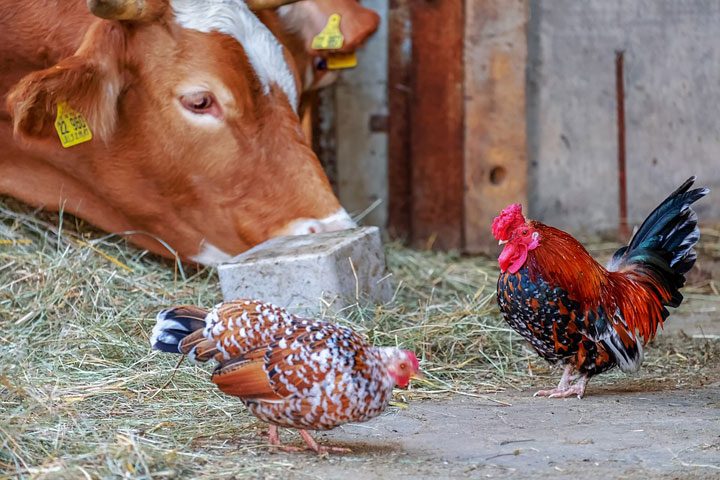
Reasons for Becoming Vegetarian
There are a bunch of reasons why people decide to adopt vegetarianism:
Health Benefits
- Vegetarian diets naturally tend to be lower in fat, incorporate more fruits & vegetables, and include more vitamins & nutrients.
- Vegetarians tend to have lower rates of obesity, diabetes, heart disease, high blood pressure, cancers, and other ailments that plague the general population.
- Those who eat vegetarian often report improved mood and energy levels. Here's a cookbook of 101+ balanced meals* if you're concerned about getting proper nutrition.
- You can lose weight on a vegetarian diet if properly followed.
Environmental Concerns
- Raising livestock for meat causes tons of greenhouse gases that contribute to climate change, so being vegetarian is the best way to reduce your carbon footprint.
- The same amount of feed that livestock animals require could feed so many more people than the meat those animals provide.
- Meat drains one of our most valuable resources: water. It takes only around 60 pounds of water to produce one pound of potatoes but nearly 20,000 pounds of water for one pound of beef! (source: The Guardian)
Other Considerations
- Since animals can feel pain, you can avoid causing suffering by adopting a vegetarian diet.
- If your religion or personal philosophy includes the doctrine of nonviolence, vegetarianism aligns with that goal.
- Factory farming is often both cruel and unsanitary, so you can voice your objection to those companies by going vegetarian.

Nutrition
One of the most common concerns people have about vegetarianism is whether or not they can still get all the nutrients their body needs.
The short answer is: it’s totally possible to easily fulfill all your nutritional needs* with vegetarian foods, but ironically it is impossible to do so eating only meat!
In fact, there are more and more athletes proving that you can not only survive on a plant-based diet, but actually physically thrive on it.
There are even vegan marathon training plans for those that want to push their bodies hard without having to eating meat proteins.
ut to be clear, there is no such thing as a diet that automatically ensures you’ll get the right balance of nutrients.
Just because you eat meat and don’t exclude anything from your diet, that doesn’t mean your diet is healthy and nutritious.
In fact, our society’s rampant health problems and increasing trends of obesity are pretty clear indicators that a diet with meat is not inherently better than a vegetarian one.
To be perfectly honest, though, following vegetarianism is not a guarantee to good health either because it totally depends on what you consume. For example, if you ate French fries and ice cream for every meal, you’re technically following a vegetarian diet but it's clearly unhealthy and not nutritious!
So if there’s no assurance that being vegetarian will ensure good health, what’s all the hype about vegetarianism being good for your body?
The main benefit is that vegetarian foods are more likely to focus on foods that provide added nutritional benefits versus foods that come with drawbacks.
For example, if you are deciding between meat or beans for protein, you have to consider that meat can come with lots of cholesterol in addition to the protein.
But, not only do beans not have cholesterol, they instead come with lots of fiber, which truly does wonders for your body.
(Side note: if you were curious about how to get protein without meat, we have a great list with TONS of vegetarian protein options (+ a free printable to boot).
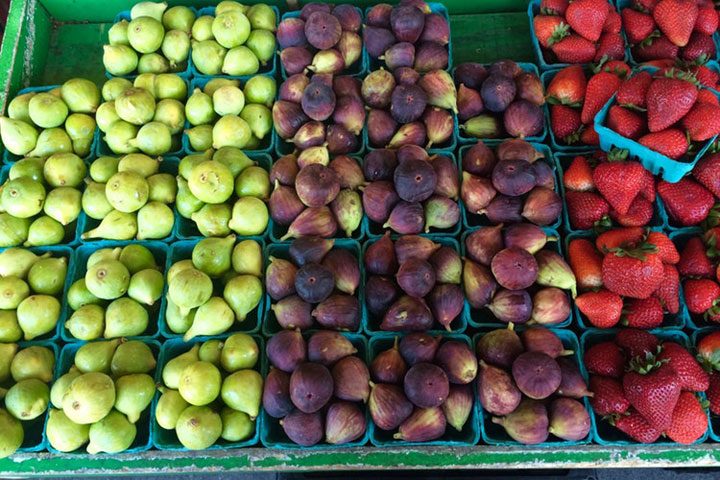
Nature has pretty much provided us with nutrient-bombs in the form of fruits and vegetables, which supply your body with a wide variety of vitamins, minerals,protein, and other important elements like fiber.
When deciding how to maximize the nutrition of your food, the general rule of thumb is that the less you process and cook your ingredients*, the more likely the nutrients will stay intact.
This is why salads are considered so healthy, because they are rarely cooked, leaving the ingredients as nutrient-packed as they originally were.
By the same logic, the more you rely on processed foods, the more there is a chance that some nutrients were lost during the process of it getting made into the final product.
Although we're not nutritionists, we believe that following a vegetarian diet can still end up being more beneficial because meats often come pre-loaded with cholesterol and fat.
That means that any dish with meat already comes with things that are not so great for your body, so you are already starting with a nutritional handicap and harming your body.
On the other hand, with vegetables, fruits, beans, grains, and so forth, you start with a net positive effect.
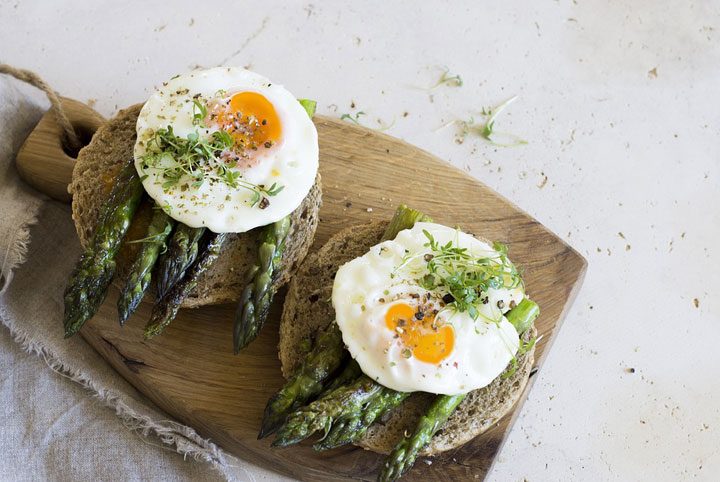
How to Start a Vegetarian Diet
Now that we've thoroughly convinced you to give this diet a shot (wink), here are some tips you should keep in mind that will help ensure your transition is smooth and more likely to stick:
Don’t feel obligated to go all-in right away
You don't have to cut out meat cold turkey (heh heh)! The goal here is to make eating veggies something you can enjoy, not like a chore! For some, making the conversion to a vegetarian diet gradually will increase the likelihood of success.
This is especially true for those who are trying to get the whole family on board. You can simply start with Meatless Mondays and then add another day of the week each month until the transition is complete.
Remember that any meal you do vegetarian will improve your health and your environment. We're not about boxing people in here; we're about spreading the joy of eating less meat.
Start with simple swaps in your favorite dishes
You don't necessarily have to learn a whole new set of vegetarian recipes for dishes you’ve never tried before. Start with a dish you enjoy, then try switching out the meat ingredient for something else.
This can mean trying out a faux meat substitute, or swapping it for something entirely different.
For example, if you love tacos and used to make them with ground beef, you can try using MorningStar’s Griller Crumbles or take out the meat entirely and use our Tex-Mex Bean recipe instead!
Or how about our meatless meatball marinara subs, which are sure to be a hit?
Get loads of ideas from Facebook!
The internet has made finding vegetarian recipes a snap, but our favorite way to get ideas is to actually join one or more bustling Facebook groups.
Active groups have easily 20+ new posts a day, with people sharing food photos and recipes to their fellow veggie-minded friends.
You pretty much have a revolving menu at your fingertips anytime you are looking for inspiration. Some of our favorite Facebook groups include:
Don’t get caught up in recreating the flavor of meat
While there are some excellent faux meats or cooking techniques that allow you to closely mimic the taste & texture of real meat, don’t get hung up on trying find identical substitutes for everything.
In fact, one of the best things about embracing vegetarianism is that it gives you a chance to discover how versatile and delicious other ingredients can be!
Vegetables, fruits, legumes, grains, and spices can be used in an infinite amount of ways to create amazing flavor profiles and textures.
If you're looking for a recipe to start with, how about any of these hearty, delicious vegetarian chili recipes?
Know your food habits and find vegetarian substitutes ahead of time
Everyone approaches their meals differently: some love cooking*, while others prefer to eat out.
Some faithfully bring home lunch every day, whereas others look forward to the chance to get out of the office for a bite to eat.
Some skip breakfast, but for others it’s their favorite meal.
Be mindful of how you get your food and start looking into meat-free alternatives now!
For example, if you’ve always packed a sandwich for lunch everyday without fail, stock your fridge with vegetarian-friendly ingredients like hummus or Tofurky cold cuts.
If you’re one to stop by the cafe downstairs daily for lunch, check out their menu beforehand to see what their vegetarian options are or find out if any other nearby eateries have something vegetarian that appeals to you.
If your kids' morning routine allows only 30 minutes for both prep and eating, arm yourself with a few fast breakfast recipes that you know you can bang out in no time.
For those that cook, keeping the right staples on hand are key to staying on track.
If you need help figuring out how to stock your pantry, check out this post on how to stock a vegetarian pantry to get a printable grocery list!

Getting The Whole Family On Board
One of the most discouraging experiences is getting yourself all excited to try vegetarianism only to have your family squash your enthusiasm with their skepticism and complaints.
In this last section, we provide some advice for making it easier to introduce vegetarianism to the rest of your family*
Get them involved
People are less likely to resist something if they're allowed to have some say, or otherwise have an opportunity to personally invest themselves.
This is particularly true of children, which is why it will really help your vegetarian cause if you can directly involve them in the meal process.
There are numerous opportunities throughout the meal planning and preparation stages where kids have a chance to get involved regardless of their age:
Planning
- Pick the actual dish they’d like you to try make
- Pick one specific ingredient that they’d like you to create a dish around (like Iron Chef!)
- Choose a culture (Chinese, Mexican, etc.) to learn about, then try a dish from that cuisine
- Come along for the grocery shopping, and pick the specific vegetable or fruit to be used
Prepping & cooking (depending on their age)
- Cleaning/rinsing
- Removing leaves or stems
- Peeling or chopping
- Adding ingredients at certain steps
- Plating
- Mixing/stirring
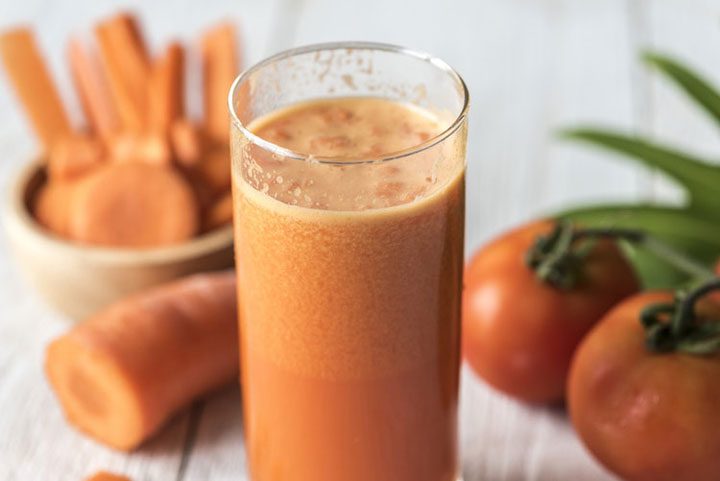
Preparing ingredients in different ways
When kids (or grown adults) say something like “I hate carrots!” that’s rarely true.
There is an astounding variety of ways to prepare any ingredient, and it is extremely unlikely that your family member will hate every single one of them.
The ways that you can vary the preparation of an ingredient are truly endless. Using carrots as an example:
Shape
- Spiralized
- Shredded
- Matchstick
- Thin coins
- Thick coins
- Cubes
- Whole
- Baby carrots
Method of preparation
- Raw
- Steamed
- Blanched
- Roasted
- Boiled
- Pureed
- Blended (in a smoothie)
Flavoring
- Tomato-based sauce
- Honey-glazed
- Salad dressing
- Creamy dips
And these are just the ideas where you have the carrots stand alone! If you count the ways where you can incorporate or hide them within dishes, the list just keeps expanding.
So if you use a vegetable, fruit, grain, or lentil that isn’t an immediate hit, don’t give up on it right away. Try varying the preparation of it and chances are you’ll find at least one variation that your loved one won’t mind (and might actually love, shocking, right?).
Try other ingredients
In a similar vein to the last tip, sometimes swapping one ingredient for another one will make a huge difference in how receptive your family is to the dish.
For example, if you family is not too keen on a dish that uses zucchini, try a different vegetable such as squash, eggplant, or carrots. Or try making your soup with lentils or chickpeas instead of the black beans that you typically use.
Variety is the spice of life, so don’t be afraid to swap things up! You might discover that your family really likes a particular ingredient, which gives you a new go-to!
Let your family customize their meals with food bars
It’s surprising how much more fun and enjoyable a meal is when you have a chance to customize it exactly the way you want. That’s why food bars are a great way to get your family excited about dinner.
Give your family a blank canvas, like easy nachos or a baked potato, offer them a variety of toppings, and let them create their own edible masterpiece which they will happily gobble up!
If you're worried that your family member might choose to forego some of the healthier choices, it's easy to get around that by setting up “zones” and having ground rules like “minimum one ingredient per zone.”
Conclusion
Use our ultimate guide to vegetarianism to get inspired to start this healthy and delicious journey! We hope our tips, tricks, and interesting facts gave you all the information you need to know about vegetarianism.
Whether you're just starting out or are a seasoned veg-head, we invite you to check out our delicious recipes and round-ups and start chowing down veggie style today!
More Recipes and Kitchen Tips
See recipe index →








